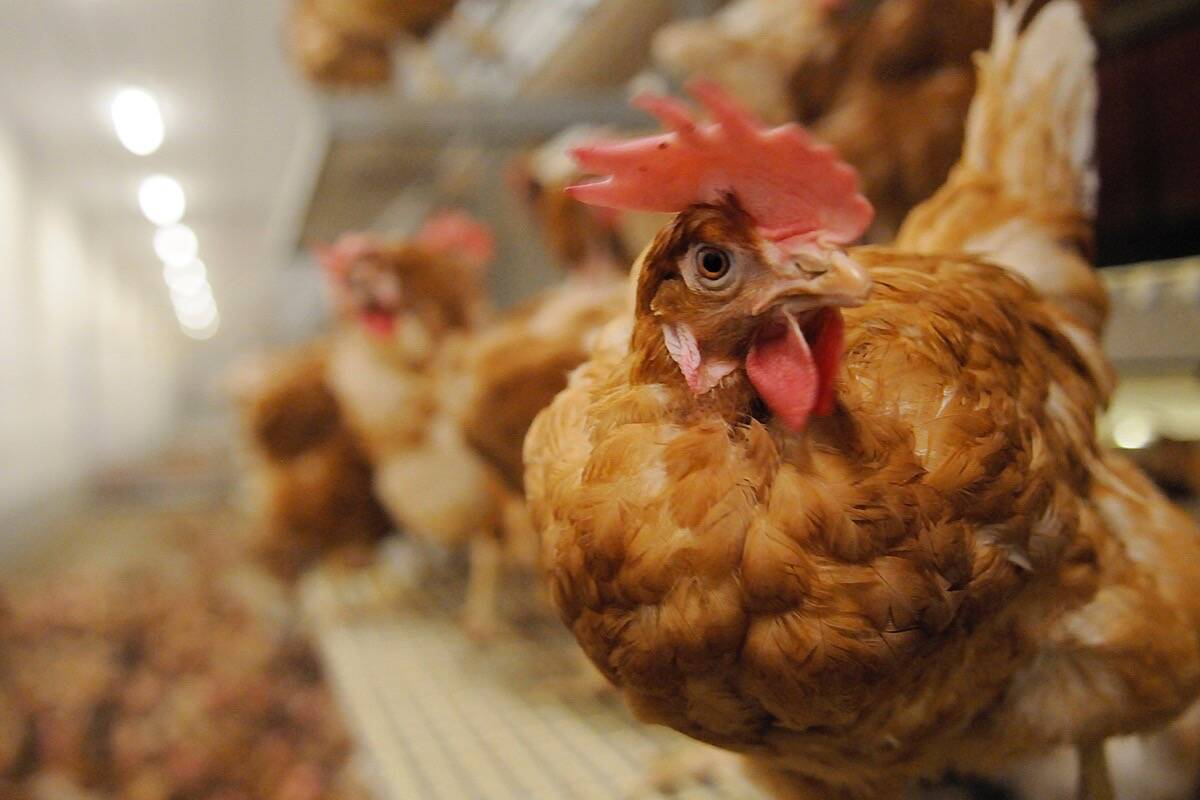B.C. chicken farmers are urging officials to allow them to jack up their prices now, before inflation has the industry laying an economic egg.
The industry is lobbying the Farm Industry Review Board to allow farmers to raise their prices for poultry and eggs to reflect current production costs.
“Because the poultry industry is regulated as a commodity, growers are not permitted to raise the prices of meat or eggs,” Peninsula and Area Agricultural Commission (PAAC) chair Robin Tunnicliffe said in a plea for help to the Greater Victoria area municipality of Central Saanich.
While the board is aware of what Tunnicliffe called the “dire situation” facing chicken growers, it has indicated a decision on the matter could take a few more months. Growers would like see a decision sooner, she added.
According to Dianne Williamson of Central Saanich’s Firbank Poultry Farm, local poultry farmers have been absorbing the increasing costs of feed and other expenses for the past two years.
Over an eight-week cycle, Firbank’s cost of chicken feed was $120,000 compared to approximately $90,000 at the same time last year, according to Tunnicliffe.
“Many B.C. growers are finding it hard to keep their heads above water. New farmers, in particular, are finding it difficult as the returns are far less than anticipated.”
In short, chicken farmers as well as other farmers find themselves in a situation where the costs of their inputs rise with market forces, while their revenues are subject to regulations that do not move as fast.
RELATED: Annual inflation rate hit 5.7% in February amid broad-based price increases
RELATED: Canadians flocking to food rescue apps to reduce grocery bills and waste
Council more than sympathized with the request from PAAC, which advises Central Saanich, North Saanich, Saanich and Metchosin on matters involving agriculture.
Central Saanich agreed to support the request, with Coun. Chris Graham predicting Russia’s invasion of Ukraine would only compound rising costs.
The two countries account for 12 per cent of all food calories traded in the world, according to the International Food Policy Research Institute, including almost 30 per cent of global wheat exports and nearly 20 per cent of corn exports. Experts fear the invasion will cut production in Ukraine, while western sanctions against Russia will curtail exports.
“This is going to be a huge challenge for all feed sources,” Graham said.
The Ministry of Agriculture said in a statement to Black Press Media that the current increase in production costs is not unique to farming and British Columbia but part of larger global inflation impacting products and countries all over the world.
“We know the increased cost for B.C. farmers is challenging,” the statement read in part. “The B.C. government has many programs in place to support B.C. farmers including income protection programs that offer assistance for crop losses and a decline in income due to market conditions, production loss or increased costs of production.”
B.C. farmers looking for information about government services and programs can reach out to AgriService BC by calling 1-888-221-7141.
wolfgang.depner@peninsulanewsreview.com
Do you have a story tip? Email: vnc.editorial@blackpress.ca.
Follow us on Twitter and Instagram, and like us on Facebook.

